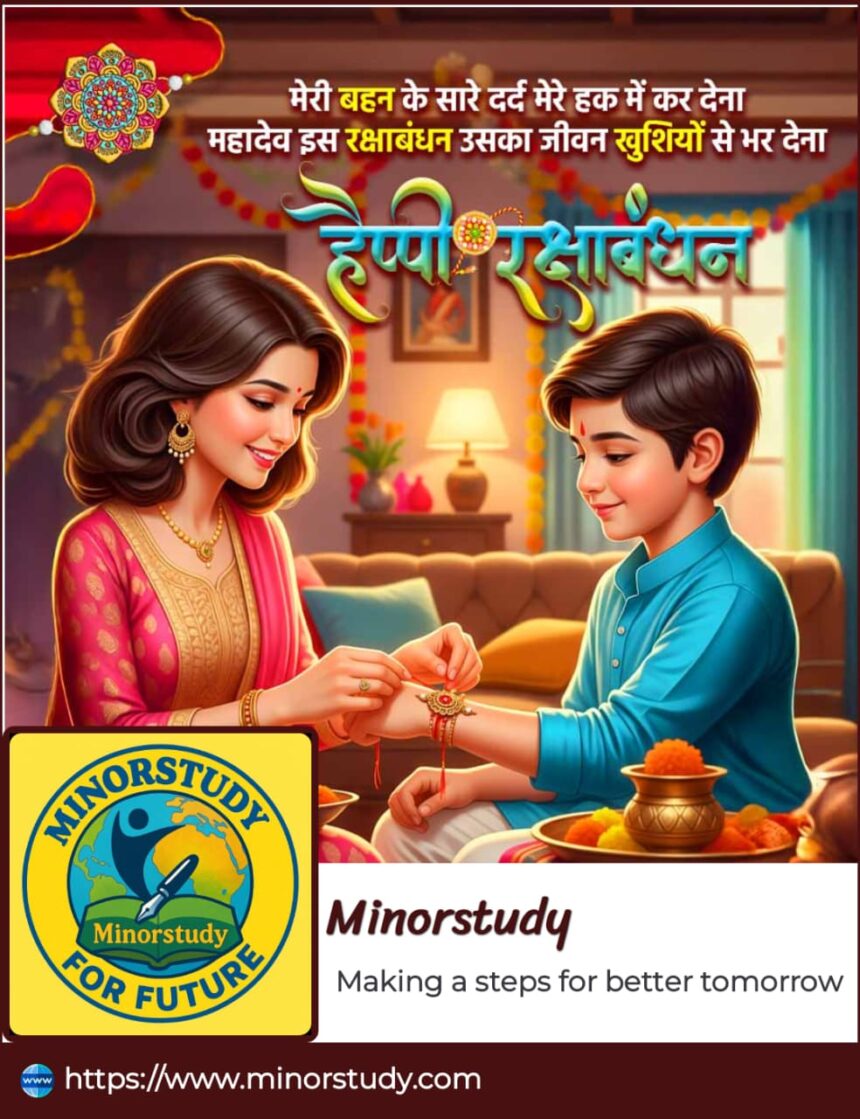Raksha Bandhan – A Timeless Celebration of Love, Protection, and Family Bonds
Raksha Bandhan is one of the most cherished festivals in India, celebrated with deep affection and a sense of responsibility between brothers and sisters. The name itself carries meaning — Raksha means “protection” and Bandhan means “bond” — together, “the bond of protection.”
- Raksha Bandhan – A Timeless Celebration of Love, Protection, and Family Bonds
- History of Raksha Bandhan
- Important Facts About Raksha Bandhan
- Timeline of Raksha Bandhan
- Significance of Raksha Bandhan
- How Raksha Bandhan is Observed
- Wishing for Raksha Bandhan
- Importance of Raksha Bandhan in Our Lives
- Daily Life Impacts
- Frequently Asked Questions (FAQs)
- Conclusion – Why Raksha Bandhan Still Matters
More than just tying a rakhi, it’s an emotion woven with memories, promises, and lifelong care. This day reminds us that family bonds are precious threads that strengthen our lives.
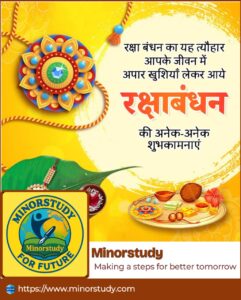
History of Raksha Bandhan
The origins of Raksha Bandhan are rooted in history, mythology, and cultural traditions. The festival is mentioned in several Indian scriptures and historical accounts:
Mythological Origins
In the Mahabharata, Draupadi tied a piece of her sari to Lord Krishna’s wrist when he was bleeding. Moved by her gesture, Krishna promised to protect her always.
In Bhavishya Purana, Indra’s wife Sachi tied a sacred thread to Indra before he went to war against demons, symbolizing divine protection.
Historical Accounts
Rani Karnavati and Emperor Humayun: The queen of Mewar, fearing an attack, sent a rakhi to Mughal emperor Humayun. He honored the bond and came to her aid.
Maharani Jindan and Sikh Soldiers: The Maharani is said to have sent rakhis to Sikh leaders to ensure protection for her kingdom.
Vedic Influence
Ancient Vedic rituals mention Raksha Sutra, where priests tied protective threads on devotees, symbolizing safeguarding against evil forces.
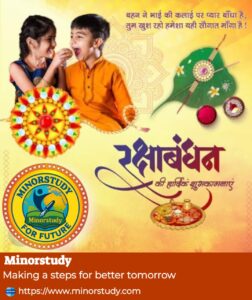
Important Facts About Raksha Bandhan
The festival is celebrated on the full moon day of the Shravan month (July–August).
The thread, or rakhi, is considered a symbol of love, trust, and protection.
Sisters pray for the long life and success of their brothers.
Brothers pledge to protect and support their sisters in all circumstances.
The tradition extends beyond blood relations — friends and community members also exchange rakhis.
Raksha Bandhan promotes unity beyond religion and caste.
The rakhi is often made with cotton, silk, or decorative beads.
The celebration includes gifts, sweets, and family gatherings.
In some parts of India, women tie rakhis to soldiers and policemen as a gesture of respect.
Raksha Bandhan is also celebrated in Nepal and among Indian communities abroad.
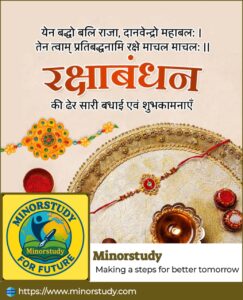
Timeline of Raksha Bandhan
| Period/Year | Event |
|---|---|
| Ancient Vedic Age | Raksha Sutra tradition begins for protection. |
| Mahabharata Era | Draupadi ties cloth to Krishna’s wrist. |
| Medieval Period | Rani Karnavati sends rakhi to Humayun. |
| Colonial Era | Raksha Bandhan becomes a symbol of unity during freedom movements. |
| Modern Times | Expanded meaning — siblings, friends, soldiers, and global Indian diaspora celebrate. |
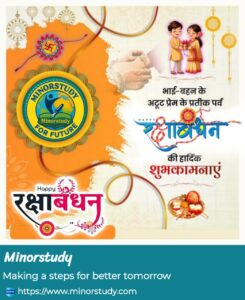
Significance of Raksha Bandhan
Raksha Bandhan is more than just a ritual; it’s a cultural glue that strengthens relationships.
Emotional Significance: Celebrates affection, gratitude, and commitment.
Social Importance: Encourages unity beyond family — promotes brotherhood in society.
Spiritual Meaning: Rakhi threads are often blessed and symbolize divine protection.
Women’s Empowerment: Gives sisters a symbolic assurance of security and respect.
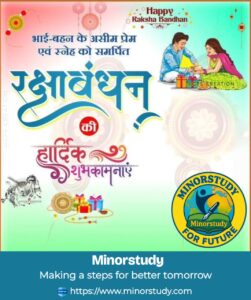
How Raksha Bandhan is Observed
Preparations
Families clean and decorate homes.
Sisters purchase rakhis and gifts.
Special sweets like barfi, ladoo, and rasgulla are prepared.
Rituals on the Day
Sisters perform aarti for their brothers.
They apply tilak (vermilion mark) on the forehead.
Tie the rakhi thread on the brother’s wrist.
Offer sweets and exchange gifts.
Modern Touch
Long-distance siblings send rakhis via post or online stores.
Digital rakhis and video calls connect families abroad.
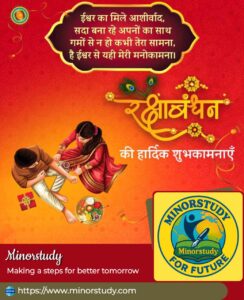
Wishing for Raksha Bandhan
Here are some heart-touching Raksha Bandhan wishes:
“No matter the distance, you’re always close to my heart. Happy Raksha Bandhan!”
“A sister is a gift to the heart, a friend to the spirit, and a golden thread to life.”
“To the world, you may be my brother, but to me, you are my world. Happy Rakhi!”
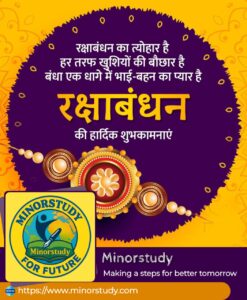
Importance of Raksha Bandhan in Our Lives
Strengthens Family Bonds: Reminds us of shared responsibilities.
Encourages Care & Protection: Builds a culture of looking after each other.
Promotes Social Harmony: Breaks barriers of religion and region.
Inspires Generosity: Gifts, blessings, and charity are common on this day.
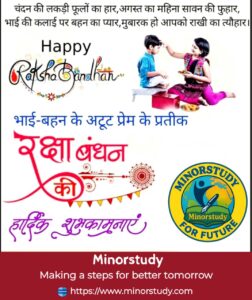
Daily Life Impacts
Raksha Bandhan teaches values we can practice every day:
Protecting loved ones in times of need.
Expressing gratitude openly.
Maintaining trust in relationships.
Supporting each other’s dreams unconditionally.
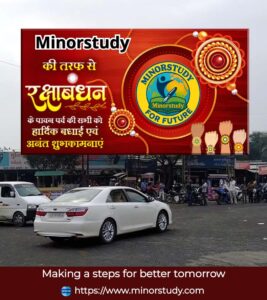
Frequently Asked Questions (FAQs)
Q1. When is Raksha Bandhan celebrated in 2025?
It will be celebrated on Saturday, 9 August 2025.
Q2. Can sisters tie rakhi to non-brothers?
Yes, it’s symbolic — you can tie it to anyone you wish to protect or bond with.
Q3. Is Raksha Bandhan only for Hindus?
No, people of various religions in India and abroad celebrate it.
Q4. What if siblings live far away?
You can send rakhis via courier or e-commerce platforms, and celebrate virtually.

Conclusion – Why Raksha Bandhan Still Matters
Raksha Bandhan is more than a date on the calendar — it’s a celebration of trust, affection, and lifelong commitment. In a world where relationships can sometimes weaken, this festival is a gentle reminder to nurture the bonds we hold dear.
By embracing the essence of Raksha Bandhan in our daily lives — protection, respect, and unconditional love — we can create stronger families, better communities, and a more caring society.

